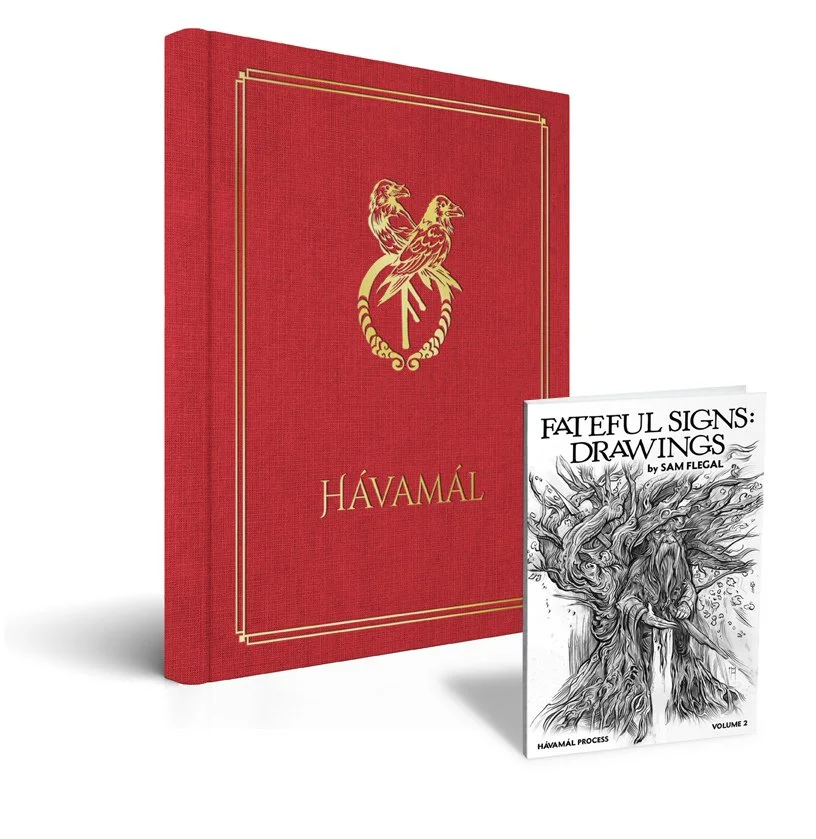The Illustrated Völuspá
The Illustrated Völuspá
Fateful Signs presents "The Illustrated Voluspa,” a collection of art by Sam Flegal. This 144-page book is an exploration of prophecy through engaging the sub-conscious’s recognition of shape and form in an effort to tap into a greater visual and spiritual understanding of the ancient Norse text.
The Illustrated Voluspa is a cloth-bound hardback book, measuring 9"x12", with a silver foil embossed cover. It has 144 pages with over 60 illustrations and the complete text from "The Voluspa" as translated by Henry Adams Bellows, including his notes, and the original Old Norse language text.
Also Available:
So What is The Völuspá?
"The Völuspá" is the oldest and best known poem from the ancient Norse collection the "Poetic Edda," thought to have been written down in about 1270 CE. The title, Völuspá, translates as “Prophecy of the Seer.” In the text, Odin goes to visit a seer and asks her to foretell the future of the gods. First she reveals her knowledge of the past, then of Odin's own secrets, then she foretells Ragnarok, the twilight of the gods.
Why the Bellows Translation?
The astute scholar of ancient Norse wisdom will note that there are many different translations of "The Völuspá." This is not surprising, as a text this important draws many a scholarly pursuit. I chose the Bellows translation for two reasons. Firstly, the text is in the public domain. Many of the more modern and arguably more accurate translations are the creative property of their translators. Secondly, because Bellows translated with a mind towards poetry and rhythm of verse. After all, this is a collection of Old Norse poetry—the English language version should sound like poetry to give the reader the full experience of the text.
This is an art book, so I wanted the text to have an artistic poetic quality that some of the more academic translations lack.












